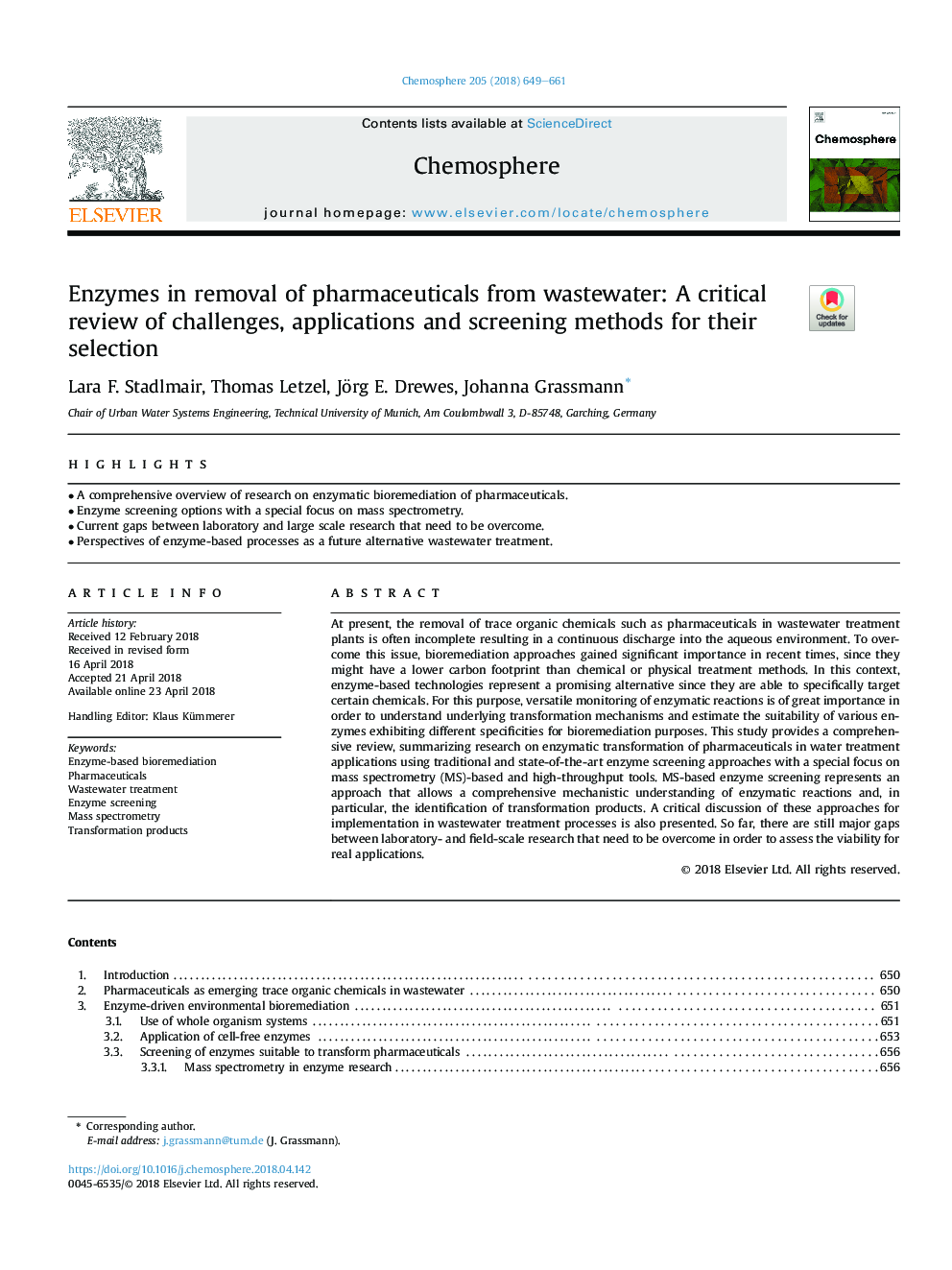| Article ID | Journal | Published Year | Pages | File Type |
|---|---|---|---|---|
| 8851168 | Chemosphere | 2018 | 13 Pages |
Abstract
At present, the removal of trace organic chemicals such as pharmaceuticals in wastewater treatment plants is often incomplete resulting in a continuous discharge into the aqueous environment. To overcome this issue, bioremediation approaches gained significant importance in recent times, since they might have a lower carbon footprint than chemical or physical treatment methods. In this context, enzyme-based technologies represent a promising alternative since they are able to specifically target certain chemicals. For this purpose, versatile monitoring of enzymatic reactions is of great importance in order to understand underlying transformation mechanisms and estimate the suitability of various enzymes exhibiting different specificities for bioremediation purposes. This study provides a comprehensive review, summarizing research on enzymatic transformation of pharmaceuticals in water treatment applications using traditional and state-of-the-art enzyme screening approaches with a special focus on mass spectrometry (MS)-based and high-throughput tools. MS-based enzyme screening represents an approach that allows a comprehensive mechanistic understanding of enzymatic reactions and, in particular, the identification of transformation products. A critical discussion of these approaches for implementation in wastewater treatment processes is also presented. So far, there are still major gaps between laboratory- and field-scale research that need to be overcome in order to assess the viability for real applications.
Keywords
Related Topics
Life Sciences
Environmental Science
Environmental Chemistry
Authors
Lara F. Stadlmair, Thomas Letzel, Jörg E. Drewes, Johanna Grassmann,
